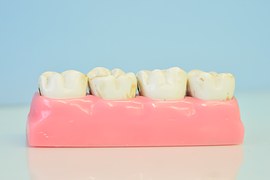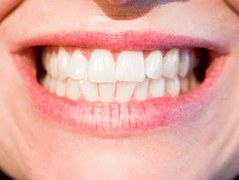Dental crowns are sculpted to replicate the look and feel of natural tooth enamel and can be an excellent choice if you’re looking to:
- Protect a weak tooth from fracturing
- Replace a damaged- chipped or stained tooth

- Cover a poorly shaped tooth
- Recreate the form and function of a damaged tooth
- Create a better aesthetic appearance
- Enhance your smile
A crown covers or caps a damaged tooth as well as improves the alignment of your teeth while improving the overall experience of your mouth.
Crown Consultation
Your dentist can recommend dental crowns for necessity as well as cosmetic purposes, depending upon the condition of your mouth and your specific requirements. However, no matter what the case is, the first step is to undergo a complete examination. This will help determine if you have to undergo the treatment immediately or can postpone it.
Who to Consult
When you want to undergo a dental treatment, the first question that clicks your mind is “how to choose a dentist?”. It’s an obvious concern as the selection of a dentist plays a crucial role in the success of your treatment. Consider below points when looking for a dentist:
- Affiliation with AACD (American Academy of Cosmetic Dentistry)
- Qualifications (Fixing dental crown is a surgical procedure. So, your dentist has to be a surgeon. Look for a dentist who is either postgraduate or possesses a doctorate in cosmetic dentistry)
- Experience (Don’t hesitate in asking for experience and history of patients they have treated)
- Fees and Total Expense (Since it’s a cosmetic procedure, it is not covered by any insurance policy. It’s better to know about costs involved in the entire process.
Benefits of Dental Crowning
Dental crowns offer you numerous benefits:
- They can replicate the original tooth in function.
- They can remove the aesthetic flaw in a tooth.

- They are the treatment of choice when tooth decay has destroyed the original tooth.
- They replicate your jaw line; in fact, can make it look better.
- They are an excellent choice in case of severe enamel erosion.
The Downsides Involved
Everything has its benefits and drawbacks, so has dental crowning.
The possible downsides include:
- Distance from your dentist: If your dentist is too far from your location, the treatment may take long. Moreover, it becomes more hectic to travel for long, especially after the treatment.
- Laboratory time: The crowns are custom-made for you, depending upon the shape of your tooth and jaw line. The measurements and impressions are taken and then sent to the laboratory. Therefore, it may take long if the distance between the laboratory and your dentist in long.
- Less flexibility: While crowns are durable, but they miss the flexibility of the original tooth. It’s better to avoid certain foods that put pressure on your tooth.
